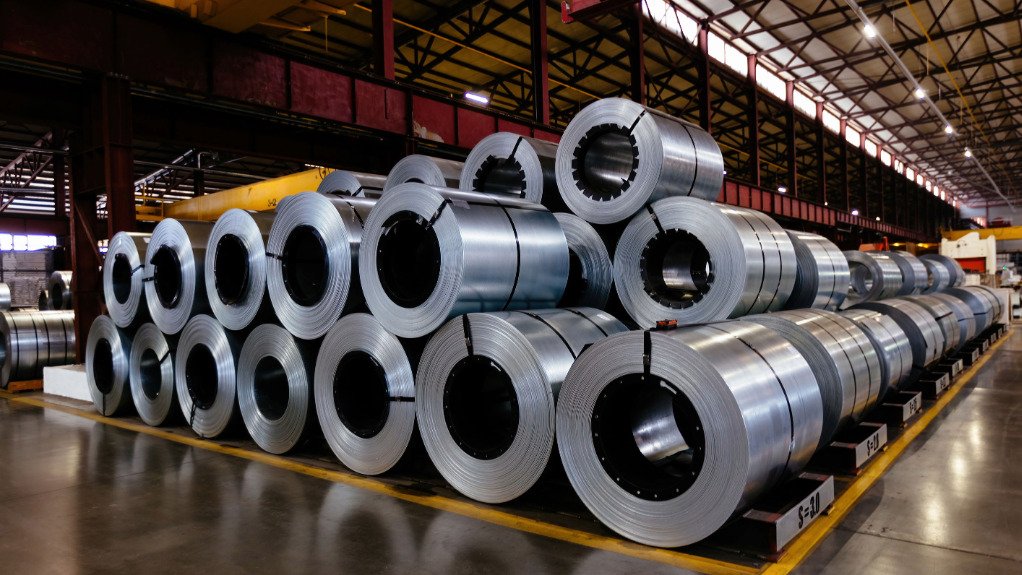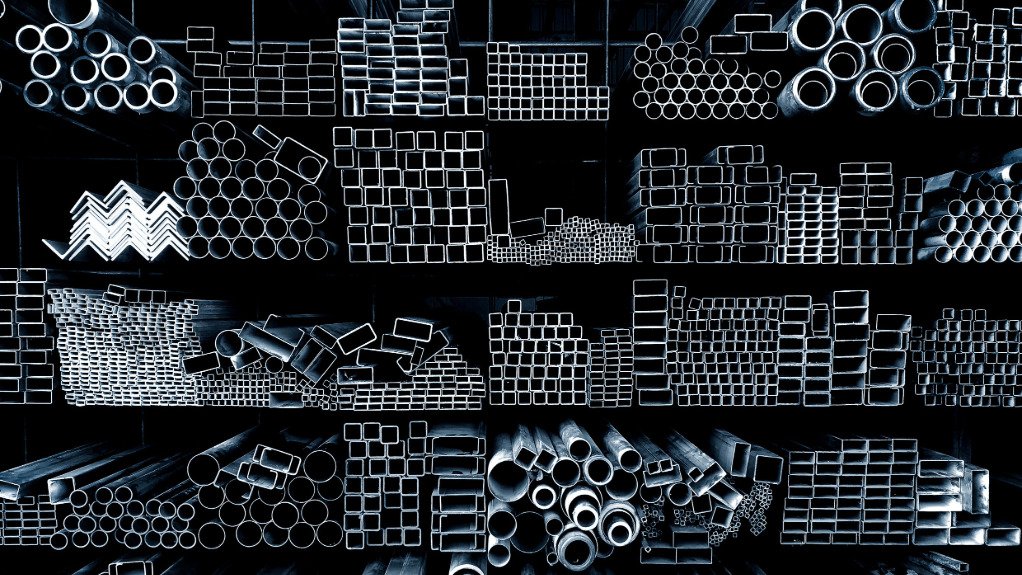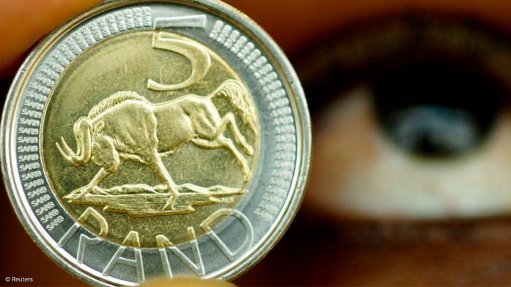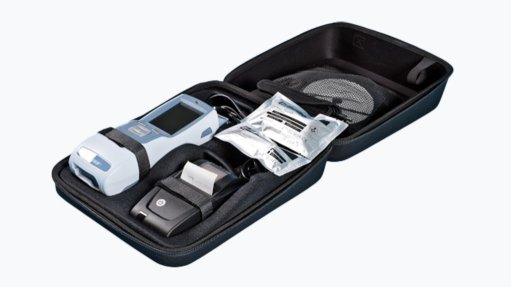Customs increase aims to level out steel products field




LEVEL FIELD The proposed tariff increase aims to eliminate loopholes exploited and enhance the competitive position of domestic manufacturers
COSTLY SUBSTITUTES Imported products are direct substitutes for locally manufactured, which can impact job creation and investment promotion
AYABONGA CAWE The tariff adjustment can address the anomaly in the existing tariff structure
Industry association Southern Africa Coil Coaters Association (SACCA) has applied for an increase in the general rate of customs duty on certain coated or plated flat-rolled steel.
The proposed increase, from duty free to the World Trade Organisation-bound rate of 10% ad valorem, has gained recommendation from trade consultant International Trade Administration Commission of South Africa (Itac).
The tariff adjustment on imported products reflects efforts to support the domestic steel industry, address challenges from global competition and promote sustainable growth in the sector, says Itac chief commissioner Ayabonga Cawe.
Coated or plated flat-rolled steel affected by the application is classifiable under tariff subheadings 7210.20, 7210.30, 7210.50, 7210.69, 7212.20, 7212.50, 7212.60, 7225.91 and 7225.92.
A key challenge that the tariff adjustment can address is the anomaly in the existing tariff structure where locally manufactured galvanised, electro- galvanised, aluminium-zinc and painted steel products face a 10% ad valorem duty, while imported substitutes enjoy duty-free entry. Cawe emphasises the importance of tariff structures that promote local industrialisation and suggests adjustments to rectify this discrepancy.
He expresses that tariff structures should ideally promote local industrialisation by having higher tariffs for downstream manufactured products and lower tariffs for upstream input products. This will enable domestic manufacturing industries to import input material at competitive prices while being protected against imports of finished products.
However, if there are lower tariffs for downstream manufactured products and higher tariffs for upstream input products, the anomaly in the tariff structure disincentivises domestic manufacturing and value addition.
Cawe says the steel industry has a strategic significance to the country given its backward and forward linkages.
The industry supports upstream industries, such as the mining of iron-ore and related minerals, while being an enabler for downstream industries such as manufacturing, the production of automotive and appliance components, automotive assembly and construction, which rely heavily on steel as a main input material.
Further, Cawe highlights the challenge posed by excess global steelmaking capacity, particularly from China, which could lead to the dumping of steel products in the domestic market, adversely affecting local steel mills’ profit margins.
According to the commission, China produces about 47% of global steel production, and the domestic economic slowdown in China in 2023 may result in an increased likelihood of steel products coming into the domestic market at ‘dumped’ or unsustainably low prices. If this occurs, it places downward pressure on prices achievable by local steel mills in the domestic market, resulting in lower profit margins.
Resolving Local Industry Challenges
Another key issue is that imported subject products are direct substitutes for locally manufactured galvanised, electrogalvanised, aluminium-zinc and painted steel, as they are used in similar roofing and cladding applications. The domestic steel manufacturing industry has historically invested heavily in capital equipment for the manufacture of such products and supports many jobs directly and indirectly.
“Any loss of market share, owing to direct substitutes being imported . . . has dire implications for job creation and investment promotion”, says Cawe.
The influx of imported substitutes threatens the domestic steel manufacturing industry, leading to capacity not being maximised and potential job losses.
The proposed tariff adjustment aims to mitigate these challenges and safeguard domestic production, investment and employment.
Levelling the Field
Another significant aim of the proposed tariff increase is to eliminate loopholes exploited by dishonest importers and enhance the competitive position of domestic manufacturers.
Cawe explains that, following an increase in duty on the corrosive protection flat-rolled steel products that were covered under Report 505, several other tariff subheadings did not attract any customs duties, owing to an oversight with the initial tariff increase application. As a result, these tariffs have been “open to abuse”.
The commission explains that, with the loophole, dishonest importers tend to mis- declare their imported products by intentionally using the incorrect tariff code that happens to be duty free, instead of using the legally correct tariff code that attracts a duty.
The increase in customs duty on these tariff subheadings will be in line with the current customs duty of 10% that is already applicable on the tariff subheadings as set out in Report 505, which would prevent the abuse of the existing loophole.
Additionally, Cawe recommends creating rebate provisions for certain products to reduce production costs and improve competitiveness.
Overall, the imports of the subject products have drastically increased since the duties were imposed on the similar products manufactured locally, with significant price disadvantages for the domestic manufacturing industry.
The commission also acknowledges the worsening competitive position of the domestic firms, owing to escalating cost structures.
Itac finds that certain products are covered by its investigation that are currently not manufactured locally and do not compete directly with those manufactured by the domestic industry.
Therefore, the commission recommended the creation of rebate provisions to reduce production costs and improve the competitive position of the domestic downstream steel industry.
It also recommended that the proposed duty be reviewed after at least one year, following the introduction of the tariff support – unless determined otherwise by the commission – to monitor the performance of the domestic industry.
Article Enquiry
Email Article
Save Article
Feedback
To advertise email advertising@creamermedia.co.za or click here
Press Office
Announcements
What's On
Subscribe to improve your user experience...
Option 1 (equivalent of R125 a month):
Receive a weekly copy of Creamer Media's Engineering News & Mining Weekly magazine
(print copy for those in South Africa and e-magazine for those outside of South Africa)
Receive daily email newsletters
Access to full search results
Access archive of magazine back copies
Access to Projects in Progress
Access to ONE Research Report of your choice in PDF format
Option 2 (equivalent of R375 a month):
All benefits from Option 1
PLUS
Access to Creamer Media's Research Channel Africa for ALL Research Reports, in PDF format, on various industrial and mining sectors
including Electricity; Water; Energy Transition; Hydrogen; Roads, Rail and Ports; Coal; Gold; Platinum; Battery Metals; etc.
Already a subscriber?
Forgotten your password?
Receive weekly copy of Creamer Media's Engineering News & Mining Weekly magazine (print copy for those in South Africa and e-magazine for those outside of South Africa)
➕
Recieve daily email newsletters
➕
Access to full search results
➕
Access archive of magazine back copies
➕
Access to Projects in Progress
➕
Access to ONE Research Report of your choice in PDF format
RESEARCH CHANNEL AFRICA
R4500 (equivalent of R375 a month)
SUBSCRIBEAll benefits from Option 1
➕
Access to Creamer Media's Research Channel Africa for ALL Research Reports on various industrial and mining sectors, in PDF format, including on:
Electricity
➕
Water
➕
Energy Transition
➕
Hydrogen
➕
Roads, Rail and Ports
➕
Coal
➕
Gold
➕
Platinum
➕
Battery Metals
➕
etc.
Receive all benefits from Option 1 or Option 2 delivered to numerous people at your company
➕
Multiple User names and Passwords for simultaneous log-ins
➕
Intranet integration access to all in your organisation





















